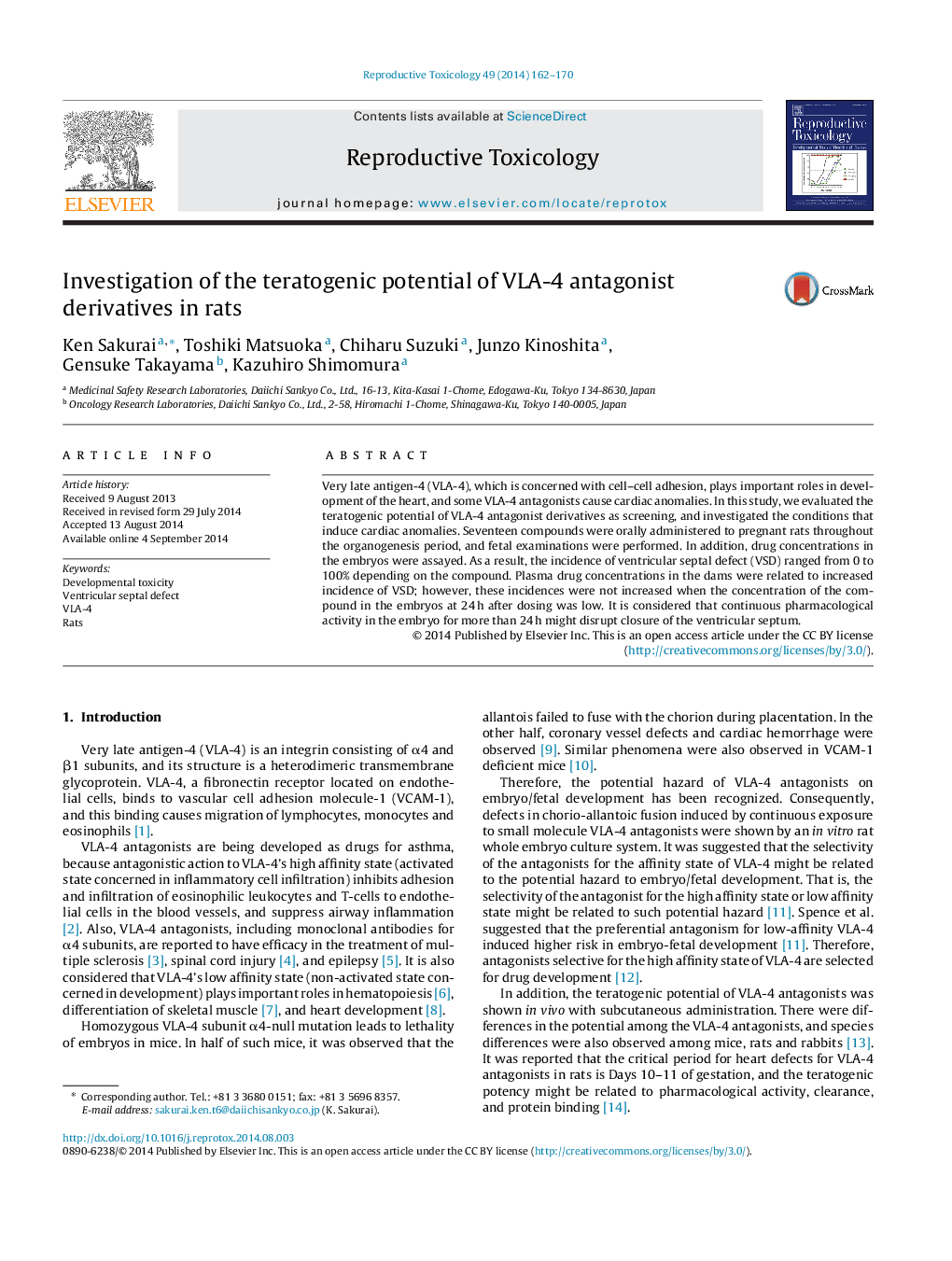| Article ID | Journal | Published Year | Pages | File Type |
|---|---|---|---|---|
| 5858843 | Reproductive Toxicology | 2014 | 9 Pages |
â¢Some of VLA-4 antagonists caused ventricular septal defect (VSD) in rats.â¢Antagonism of low-affinity VLA-4 was not related to VSD formation.â¢Rank of sensitivity in effects of VLA-4 antagonists were rabbits > rats > mice.â¢Drug exposure in embryos over 24 h was most important for VSD formation.
Very late antigen-4 (VLA-4), which is concerned with cell-cell adhesion, plays important roles in development of the heart, and some VLA-4 antagonists cause cardiac anomalies. In this study, we evaluated the teratogenic potential of VLA-4 antagonist derivatives as screening, and investigated the conditions that induce cardiac anomalies. Seventeen compounds were orally administered to pregnant rats throughout the organogenesis period, and fetal examinations were performed. In addition, drug concentrations in the embryos were assayed. As a result, the incidence of ventricular septal defect (VSD) ranged from 0 to 100% depending on the compound. Plasma drug concentrations in the dams were related to increased incidence of VSD; however, these incidences were not increased when the concentration of the compound in the embryos at 24Â h after dosing was low. It is considered that continuous pharmacological activity in the embryo for more than 24Â h might disrupt closure of the ventricular septum.
